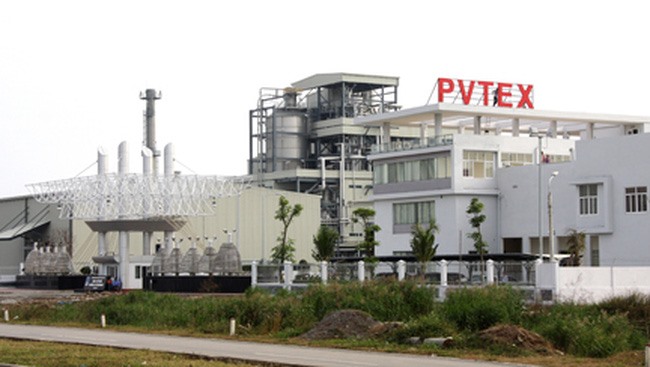The Government would not use public funds to rescue 12 loss-making projects under the jurisdiction of the Ministry of Industry and Trade (MoIT), Deputy Prime Minister Vuong Dinh Hue said.

The Government will not use public funds to rescue 12 loss-making projects under the jurisdiction of the Ministry of Industry and Trade (MoIT), Deputy Prime Minister Vuong Dinh Hue said.
He told the ministry on Monday that no additional capital would be provided for these projects and that any further measures to deal with them must be based on market principles. Those which could not be handled would be strictly punished.
“Thanks to the efforts from the Viet Nam National Oil and Gas Group (PetroVietnam) and projects of the Viet Nam National Chemical Group (Vinachem), like DAP Dinh Vu, they’ve started to report profit. Viet-Trung Steel Company reported profit in 2017 after prolonged losses in years,” he said.
In addition, the deputy PM asked members of the steering committee to clarify difficulties and shortcomings in resolving disputes of engineering-procurement-construction (EPC) agreements with contractors as well as financial issues in order to continue implementing projects in 2018.
Hue said that it was still too early to take such positive results for granted and the challenges remain enormous, so much more effort would be needed to achieve the goal of bringing about fundamental changes to these projects.
He urged the ministry to improve productivity by applying technological innovations and slashing overcapacity.
According to MoIT’s deputy minister Hoang Quoc, progress has been made in restructuring these big-ticket projects and some have returned to profitability while some have significantly reduced their losses.
At the same time, a number of projects have resumed operation after long periods of delay and suspension.
Bio-fuel plants of PetroVietnam resumed operation and will have consumption products in March. Petrochemical and Textile Fibre Joint Stock Company (PVTex) will resume production at its fibre production factory next month as it signed a contract to sell fibre for local companies.
PetroVietnam’s general director Nguyen Vu Truong Son said it would take three to six months to resume all operations of PVTex. Currently, PVTex’s partners expected that the Government committed to ensuring their rights in the co-operation process, applying technical barriers for polyester imports and ensuring a stable electricity source at Dinh Vu Industrial Zone.
|
The National Assembly, in a resolution in November 2016, named five projects that need to be reviewed, including the Dinh Vu Polyester Fibre Plant, with an investment of VND7 trillion (US$311 million) from PetroVietnam; PVTex; the VND2.2 trillion Dung Quat Bio-Ethanol Plant by PetroVietnam Central Biofuels JSC; Phase 2 of Thai Nguyen Iron and Steel Corporation’s (TISCO) production expansion project with capital of VND8 trillion, Phuong Nam Paper Mill and Ninh Binh Fertiliser Plant. The Government also asked the ministry to add seven other projects that have incurred huge losses. The other projects under the scanner are Ha Bac Fertiliser, DAP Fertiliser 1 Lao Cai, DAP Fertiliser 2 Hai Phong, Binh Phuoc Ethanol, Phu Tho Ethanol, Dung Quat Shipyard and the joint venture between Quy Sa Mine and Lao Cai Cast Iron and Steel Plant. All of these projects have suffered because of bad investment and management decisions by project owners, who are enterprises, groups and corporations under the ministry. |
Deputy minister Vuong said Dung Quat Shipyard Company (DQS) was hiring a unit to implement an audit of its EPC contracts. DQS has been liquidating its unnecessary assets.
He said Vinachem’s DAP Dinh Vu Plant had profits of VND16 billion in 2017 and VND66 billion in the first two months of the year.
The plant reported profit after prolonged losses thanks to enhanced administration and reduced production costs.
Vinachem’s three plants of DAP Lao Cai, Ninh Binh Fertiliser and Ha Bac Fertiliser have maintained production and had higher selling prices, reducing losses.
The Steel Corporation is building the divestment plan at Thai Nguyen Iron and Steel Corporation (TISCO) and seeking approval from the MoIT. It is expected to divest capital from the company in 2018.
At a National Assembly session in December last year, minister of Industry and Trade Tran Tuan Anh said that the handling of these 12 loss-making projects was on the right track and pledged to provide radical solutions to their problems by 2020.
On Tuesday, the supervision team of the National Assembly on implementation of policies and laws on using of State capital and assets at State-owned enterprises (SOEs) and their privatisation in 2011-16 had a meeting with the Government.
The team will supplement and complete the report and submit it to the NA’s Standing Committee in April before issuing the supervision resolution at the NA meeting in May.
Minister of Finance Dinh Tien Dung said the equity scale at wholly State-owned firms had been increased.
The total State equity in 2016 rose by 92 per cent to VND1.39 quadrillion while the total assets rose by 46 per cent to VND3.05 quadrillion from 2011.
However, the production effectiveness of SOEs has been low due to the world economic crisis in 2011-13 period. In 2014-15 period, the SOEs fared better. However, by the end of 2016, there were still SOEs with losses.
Ministries, sectors and SOEs paid attention to sell shares for strategic investors after privatisation. Administration after privatisation has been improved, promoting the development of the stock market and production effectiveness.
Results of 350 SOEs after privatisation in 2015 showed that their average pre-tax profit rose by 49 per cent, State budget contribution 27 per cent, charter capital 72 per cent, revenue 29 per cent and income per capita 33 per cent. — VNS





